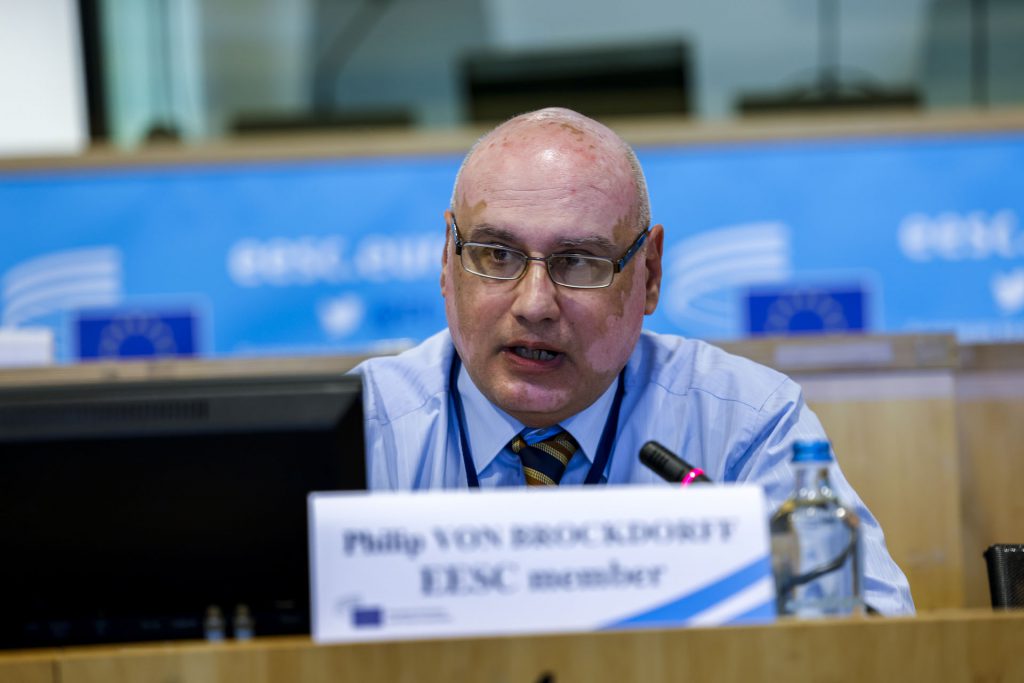Unions and productivity: partners in progress, not opponents

At a time when Europe faces major economic transitions, the discussion around productivity is gaining renewed attention. But too often, the debate overlooks a key player: trade unions. In a recent presentation delivered by Prof. Philip Von Brockdorff, Vice President of the Workers’ Group at the European Economic and Social Committee (EESC), the message was clear — trade unions are not a barrier to productivity, but a vital part of the solution.
Prof. Von Brockdorff laid out a compelling economic case, underlining that productivity is essential for competitiveness, economic growth, and job creation. But productivity gains are not just about doing more with less. They are about how we innovate, how we invest, and how we treat people.
Innovation, not austerity, drives productivity
Europe’s productivity gap with countries like the US and China does not stem from worker inefficiency. Rather, it stems from a lack of investment in innovation and in people. Prof. Von Brockdorff highlighted how US firms scale faster and attract more capital, often due to lighter regulatory frameworks and stronger venture capital ecosystems. Europe, by contrast, must find new ways to stimulate high-value sectors, foster advanced technologies, and most importantly, invest in human capital.
Innovation must be inclusive — and that’s where trade unions come in. Their role is essential in helping workers navigate change, gain new skills, and contribute meaningfully to evolving workplace strategies.
Wages have not driven inflation
One of the most powerful points raised in the presentation was the need to debunk the myth that wage increases have fuelled inflation. The spike in inflation during 2022 was driven largely by energy and food prices, not by worker demands. While nominal wages increased, they merely compensated for cost-of-living shocks — and even so, real wages fell.
Despite this, many businesses recorded higher per-unit profits, proving that wage increases were absorbed without passing significant costs to consumers. The bottom line: wages have not been inflationary, and workers have not recovered their purchasing power.
Falling labour share: a wake-up call
Over the past two decades, the labour share of income — the portion of national income going to workers — has declined steadily. This means that while productivity has risen, the benefits have flowed increasingly to capital, not to labour.
This growing imbalance underscores the need for stronger worker representation. Trade unions, through collective bargaining and sectoral agreements, can help ensure that productivity gains are shared, rather than hoarded. Prof. Von Brockdorff stressed that aligning wages with productivity is not just a matter of fairness — it is essential to restoring trust in the economic system.
Collective bargaining: a force for transformation
Rather than resisting change, trade unions can facilitate it. Prof. Von Brockdorff noted that collective bargaining contributes directly to workplace innovation, morale, and long-term planning. A supportive working environment, backed by worker participation, helps companies adapt to change — especially in the age of AI and digital transformation.
Through co-determination models, unions help create workplaces where workers have a say in how change unfolds — making it more likely to succeed. Studies show that worker voice is positively linked to productivity. Businesses benefit too, not just from higher efficiency, but from social stability, smoother restructuring, and a more committed workforce.
Re-igniting worker representation
Prof. Von Brockdorff concluded with a call to action: Europe must reignite interest in the power of worker representation. The future of productivity is not about suppressing wages or marginalising unions — it’s about empowering workers to be active partners in economic progress.
As trade unions, our role has never been more relevant. We are not just negotiators of wages — we are builders of inclusive growth, champions of innovation, and guardians of fairness in an economy that must serve people, not the other way around.
